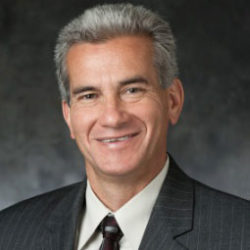Self-driving cars are currently being tested on restricted roads in California, Texas, Arizona, Washington, Pennsylvania and Michigan.
Predictions for fully autonomous vehicles vary depending on the source, but many experts project that by 2035, 21 million self-driving cars will be on U.S. roads. It appears to be a matter of when, not if, electrification will dominate the industry.
To match the private sectors pace of innovation, the U.S. Department of Transportation released new guidelines for autonomous driving systems. The document, titled A Vision for Safety 2.0, replaces the 15-point safety assessment system that was previously in place. The purpose of the document, according to U.S. Transportation Secretary Elaine Chao, is to streamline federal regulatory processes and “support further development of this important new technology, which has the potential to change the way we travel and how we deliver goods and services.”
The full document can be found here. We have summarized the key takeaways below.
- This is a voluntary framework for manufacturers; the guidelines in this framework will not be enforced.
- This framework revises the 15-point safety assessment system that had previously been in place.
- The framework encourages manufacturers to be transparent by documenting all aspects of design decisions.
- The 27-page document addresses hot topics such as crash avoidance, human-machine interface, validation methods, vehicle cybersecurity, post-crash automated driving system behavior, data recording, consumer education and the role of state governments.
- The feedback has been mixed, depending on who you talk to.
- From a manufacturers perspective, this framework is perceived as a step in the right direction offering streamlined processes and fewer barriers to testing.
- From a consumer perspective, the framework is perceived as a step backward. Rather than issuing guidance, the Consumers Union would prefer specific regulation.
They perceive the revised guidance to be an oversight of the bigger picture in consumer safety.
Version 3.0, Federal Automated Vehicle Policy (FAVP) is expected to be released sometime in 2018. The U.S. Department of Transportation has requested input from the public to help call attention to specific regulations that need to be updated. More information on FAVP 3.0 can be found here.
We remind our clients that staying ahead of the competition means preparing for the future. Is your dealership positioned to thrive when electrification dominates the industry? Call us today to discuss the opportunities autonomous vehicles present for your dealership.
Councilor, Buchanan & Mitchell (CBM) is a professional services firm delivering tax, accounting and business advisory expertise throughout the Mid-Atlantic region from offices in Bethesda, MD and Washington, DC.
©2018




